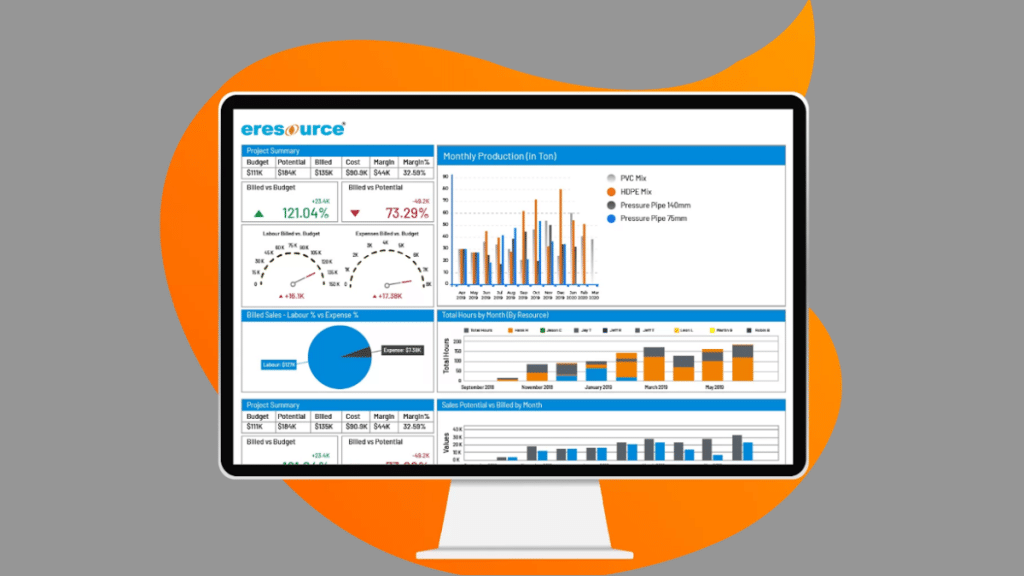Enterprise Resource Planning (ERP) has been the backbone of manufacturing organizational efficiency for years, integrating several functions into a comprehensive framework to drive notable growth.
ERP software can improve a manufacturing company’s efficiencies along the supply chain and process lines. Managers seek clear visibility on all processes along the production line to ensure enough materials are available for production or products customers need.
An effective ERP for manufacturing can help a company automate almost every process involved in placing and fulfilling orders. But how can these companies automate ERP? In this guide, you will learn how manufacturers can automate ERP software.
What is Manufacturing ERP Automation?
Manufacturing ERP automation involves integrating modern technologies, such as machine learning, artificial intelligence, etc., with ERP software. This integration will empower manufacturing ERP platforms to perform tasks and make informed decisions with little to no human intervention, transforming manufacturing units into self-operating, intelligent facilities.
Effective Way to Automate Manufacturing ERP
This section outlines some incredible ways to automate manufacturing ERP:
1. Automating Orders
A manufacturing ERP system is an optimal solution for automating customer order receiving and processing. Now, manufacturers do not need to follow traditional ways of processing orders, like writing purchase orders or recruiting a clerk to enter an order manually.
Implementation of an ERP system enables manufacturing units to automatically collect orders online via a web portal, and this data can further be automatically available on the comprehensive platform.
2. Automating Production
Most manufacturing units struggle due to their weak data collection process. For example, it takes a lot of time for employees to record the time when a specific production process commences and the number of orders completed within a particular duration.
Therefore, to have an accurate, 360-degree view of the production process, manufacturing units need a modern ERP system that can automatically collect necessary data by directly connecting to the production processes. This robust automated platform will record data in real-time and provide stakeholders with key information about different production processes.
3. Automating Scheduling
The data recorded in the ERP software is key for managers to make timely and educated decisions about the jobs to be undertaken in the supply chain. Moreover, the selected jobs should optimally utilize resources.
Furthermore, this data can aid managers in knowing how long a specific job will take, when the next job is started, whether delivery times align with customer requirements, and more.
Automating the scheduling of optimal jobs with the help of the eresource Xcel ERP system can save significant time. In addition, you can avoid errors that take place when depending on manual dispatch reports, sending staff to check the current job’s status, or deciding when the next job will be started.
4. Automating Quality Control
Quality control is the cornerstone of the success of manufacturing companies. Large plants manufacturing hundreds to thousands of parts regularly can automate their quality control to deliver superior products to customers.
For instance, plant sensors can be installed to automatically pinpoint faults in production and transmit the information to the ERP platform. Whenever any fault is detected, your ERP system can alert the quality control managers about the defective product and its location in the supply chain.
This entire procedure can be undertaken without disrupting the process flow of parts in the supply chain that have already passed the quality checks.
5. Automating Distribution
Besides production, manufacturing firms find it challenging to manage their complex distribution system that might involve different parties, from suppliers to retailers and customers. The best solution to streamline distribution is automating it to reduce the time it takes for products to reach the end party in the supply chain line.
For instance, you can ask the third-party vendor to configure a manufacturing ERP system to automatically select the optimal carrier for the finished products and keep tracking it. Finally, when customers receive their orders, the carrier firm can immediately debit the customer’s bank to complete the ERP-driven distribution automation cycle.
Concluding Words
If you are looking forward to automating the majority of monotonous or time-consuming processes for your manufacturing company, investing in the eresource Xcel erp for manufacturing industry is your cutting-edge solution. From orders and production to scheduling, quality control, and distribution, robust ERP software can automate all these vital processes for manufacturers and, thus, drive success to the business.
Eresource Infotech Pvt Ltd is one of best ERP Software company in India. We offers construction, manufacturing, logistics, process manufacturing, trading and distribution industries.
